Ultimate Guide About Buying Real Estate In Costa Rica
Enrich your real estate holdings with the purchase of property in Costa Rica. This Guide outlines the Costa Rica real estate to help you make an educated decision.
Located between the expansive Pacific Ocean and the breezy tropical waters of the Caribbean Sea, Costa Rica is a land of spectacular views and coastlines. In fact, the name Costa Rica literally means “rich coast.” Along with these idyllic beaches, Costa Rica is a land of remarkable biodiversity. The country contains strikingly gorgeous volcanoes, luxuriant jungles, and pristine lakes. Moreover, the country’s progressive ecological policies have resulted in an unspoiled ecosystem that attracts thousands of adventurers and tourists every year.
Natives of Costa Rica take pride in their country’s natural beauty and vibrant local culture. Known colloquially as “ticos,” these locals demonstrate a pura vida philosophy towards life. Whether guiding tourists through the beachfront town of Tamarindo real estate or enjoying nightlife in the capital city of San José, local residents exude cheerful hospitality enhanced with a lively blend of Spanish and indigenous cultures.
Newcomers discover that embracing the pura vida extends to all areas of life in Costa Rica. For example, the United Nations World Happiness Report ranked Costa Rica the happiest country in Central America and the second-happiest country in the Americas after Canada. The New Economics Foundation Happy Planet Index twice named Costa Rica the highest-ranking country in the world for environmental sustainability, and the Index named Costa Rica the greenest republic in the world in 2009. Local farms produce gourmet coffee, bananas, and pineapple that flavor the distinctive local cuisine and represent some of the top food exports around the world.
With high index rankings and one of the most enviable ecosystems in the world, it is no coincidence that many expats want to obtain their own portion of this Central American paradise. Whether you want to retire in a tropical country, relocate for a new job or business, secure a holiday home, or invest in real estate, this guide will show you how to buy property in Costa Rica. Use this guide to understand unique aspects of Costa Rica real estate and to obtain a proper overview of the logistics and legalities of finding Costa Rica real estate for sale. This guide also outlines the process of buying a house in Costa Rica and can help mitigate fear of pitfalls when dealing with rentals or remote ownership. No matter your reason for buying property in this country, the following toolkit gives you the inside track on everything you need to know to purchase real estate in Costa Rica.
1. Background Information to Know Before Buying Property in Costa Rica
Before buying land or a house in any country, it is important to understand the customs and legalities as well as your rights of ownership as a foreigner. Fortunately, most prospective buyers are delighted to discover that the Costa Rica real estate market is one of the most foreigner-friendly on the globe. Whether you want to buy property in Costa Rica as an expat, tourist, or investor, here are the best tips to make the market work in your favor.
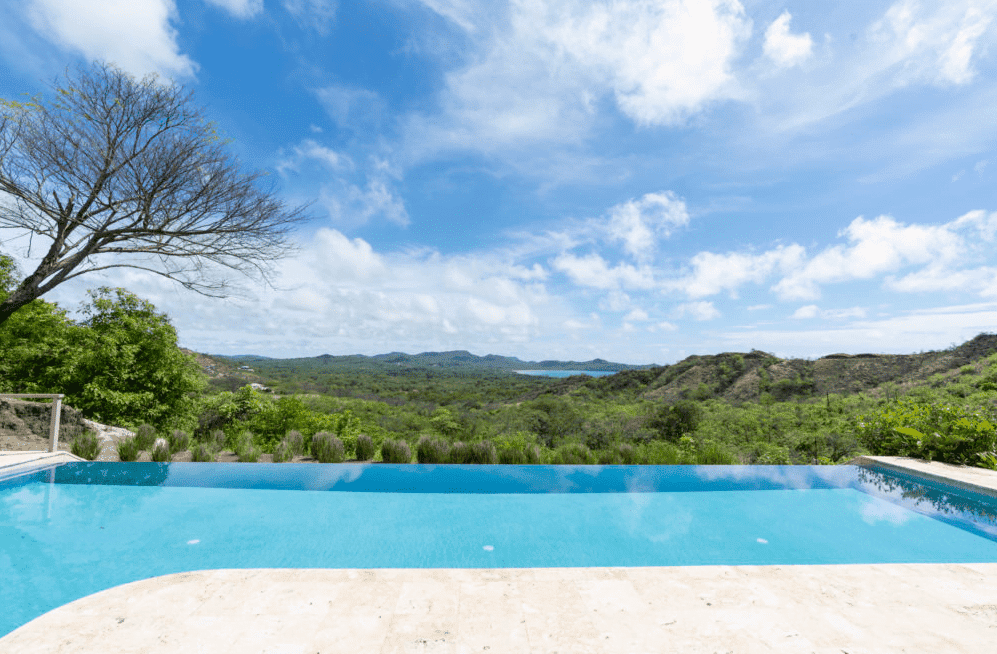
Why Buy Property in Costa Rica?
The top reason people city for buying property in Costa Rica is the quality of life. This country has a laid-back philosophy toward life, famously delicious fresh produce, pleasant climate, and low crime rate. Since activities tend to move at a more leisurely pace and cost less than most Western countries, residents also enjoy a great standard of living. The quality of standard services such as health care, education, and infrastructure are not much different from those found in wealthier countries like the United States or Canada. Because of the national emphasis on environmental protection, residents enjoy green-sourced electricity and carbon-neutral energy in the majority of the country. In addition, English is a widely spoken second language and makes communication simple. Due to the regular flow of tourist and generally low crime, Costa Rica is likely to remain one of the safest bets for rental investments in the Western hemisphere.
Legal Rights When Purchasing Property In Costa Rica as a Foreigner
Unlike most countries in the world, Costa Rica grants foreign property buyers the same legal rights as locals. This legal protection is one of the primary reasons that foreign owners and investors find real estate in Costa Rica so appealing. While there are vast opportunities for purchasing homes or land in the country, there are two types of property neither locals nor foreigners can purchase or develop. The two restricted areas are as follows:
The 50-Meter Zone
- The 50-Meter Zone: The first 50 meters measuring from high tide to inland is public property that can be neither bought nor sold. This law protects the coastline from over-development and destruction.
The 150-Meter Zone
- The 150-Meter Zone: After the first 50 meters, the next 150 meters is commonly municipal property. Some municipalities lease this premium land for terms of 20 years (with possible renewal). In addition, foreigners who wish to lease must split half the ownership with a Costa Rican citizen. Notable exceptions to this Tamarindo and Potrero Beach. Foreigners can typically purchase beachfront properties in this area of Costa Rica starting directly after the 50-meter mark.
Property Titles for Real Estate in Costa Rica
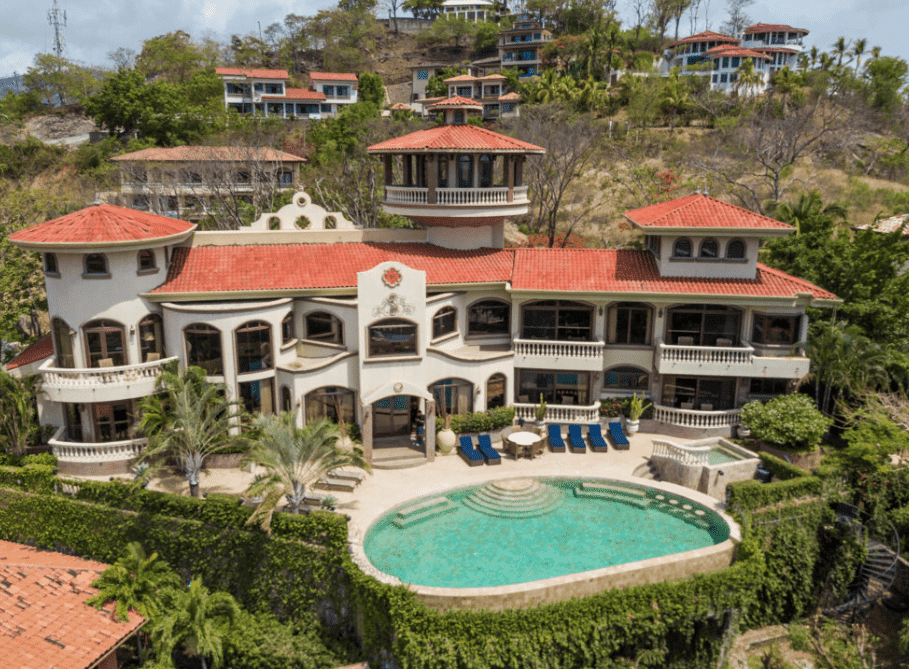
Foreigners can also obtain titles as proof of property ownership. Since Costa Rica has undergone development for decades, most Costa Rica real estate for sale has already been registered and titled. As a result, you can easily check the registrar to ensure that your desired property is fully legal and scam-free. In the unlikely event that you encounter untitled land “for sale,” it is usually best to pass in favor of land that already has a registered title. The reason is that Costa Rica’s legal proceedings can take many years to settle competing claims for property. Even if you do manage to register an untitled property, the law permits further claims against any property for up to 10 years after the initial registration. Avoid the stress and headache of haggling for an untitled property by opting instead for a stellar property that has already been vetted, titled, and fully registered.
2. How to Find Your Dream Property in Costa Rica
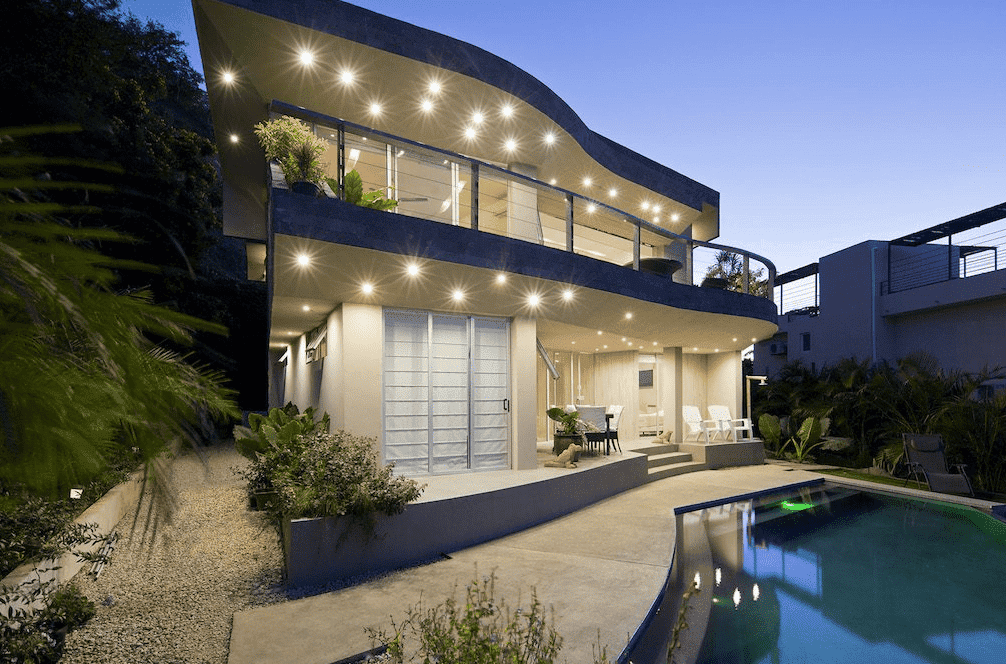
As Costa Rica is a land of startling biodiversity and enchanting locations, it is no wonder that some prospective buyers feel unsure of where to begin. To identify the best property for you, it is best to focus on your personal priorities and unique needs. Ask yourself the following questions:
- Do you need quick access to modern amenities such as the most up-to-date schools, hospitals, stores, and public transportation? Or can you sacrifice a few modern conveniences to live in a remote location for quicker access to activities like hiking and exploring rugged natural beauty?
- Do you prefer the bustling pace of a larger city, or would you prefer to wake up to the sound of peaceful waves on your very own beachfront property?
- Would you prefer to live the high life of surfing and snorkeling, or does your dream day consist of relaxing in a hammock in your private garden?
- Do need the sense of community that comes from living close to a community of fellow expats, or did you always envision living and retiring in a more isolated part of this Caribbean country?
Deciding on your needs can help you determine which part of the country to begin exploring buying options. For example, the Guanacaste Province is home to modern amenities like the Daniel Oduber Quirós International Airport, golf courses, and luxury hotels while still offering access to white beaches and tropical rain forests. In contrast, the Limón Province is more isolated but offers access to tropical reefs and plenty of the country’s natural parks. Either way, once you decide on your preferred region, it is time to explore the pros and cons of purchasing a home, condo, land, or rental property in Costa Rica.
Buying a Home in Costa Rica as a Foreigner
Due to the strong real estate market, buying a home in Costa Rica is a simple process. It is normally as straightforward of determining the location and making an offer on a “ready to move-in” home. Depending on size, home properties are often flexible enough to customize with preferred amenities like small gardens or swimming pools. With any property in the country, it is important to get a detailed history and structural details (especially if you plan to make alterations to the property).
Pros and Cons of Buying a House in Costa Rica as a Foreigner
Pros:
- Strong market of ready-to-inhabit homes; a straightforward process
- Increased privacy and security
- Generally more spacious than other living options
- Ability to start enjoying Costa Rica immediately
- Architecture usually integrates seamlessly with surrounding infrastructure
- Responsible for all upfront costs
- May have higher maintenance costs from older construction
- Architecture and design may not match your exact taste
- May require compromises in location and amenities
Buying a Condo in Costa Rica as a Foreigner

If you are not ready to shell out for a house, buying a condo is a viable option in Costa Rica. Many condominiums in Costa Rica are gated properties with 24-hour security, outdoor maintenance, and front-office management. Costa Rica Condos are among the most popular options for holiday or seasonal homes since staff members maintain the buildings and surroundings.
Pros and Cons of Buying a Condo in Costa Rica as a Foreigner
Pros:
- Security and sense of community with other vacationers or expats
- Shared cost of upkeep and management makes it economical
- Easy to move in and typically features up-to-date amenities
- Often include modern conveniences like pools, seating areas, and access to public transportation
- Restrictive in terms of rules, policies, and decor
- Shared spaces may impact sense of freedom
- Less privacy than other living options
Buying Land in Costa Rica as a Foreigner
Buying land in Costa Rica gives you the opportunity to build a home or business from scratch. This option offers potentially spectacular views, provides an unmatched sense of pride and accomplishment, and represents the type of property ownership that you can potentially leave behind in a will or living trust. With the right architect, engineers, and contractors, you can include any amenities you want (such as swimming tools, golf or tennis courts, patios, and balconies). However, it is almost certain that you will also need a legal advisor to help comply with municipal, provincial, and federal laws. You will also need to work with a real estate broker or agent to scout available land. If you decide to begin a major building project after purchasing your land, you will often need to be able to oversee construction in-person to ensure satisfactory progress.
Having land of your own can be one of the most rewarding ways to make the most of this tropical paradise. You can construct a dream home for retirement or build and sell a luxurious house for profit. Owning land is also a great way to build a holiday home that you can rent out throughout the year. Because of the growing number of expats in the region, you can either join a developmental suburb near a city or choose an idyllic location away from the crowds.
Pros and Cons of Buying a Land in Costa Rica as a Foreigner
Pros:
- Build your dream home in a tropical paradise
- Increase property ownership as part of a personal portfolio
- Foreigner-friendly land ownership on which to build home or business for potential profit
- Ideal for retirement or holiday homes
- Requires assistance for legal compliance as well as location-scouting for purchase
- Initiating a building project means more risk and may require on-location supervision
- Potential budget overruns and unforeseen costs from architects, contractors, and suppliers
- Possible delays in construction from weather conditions
- Ownership and maintenance of building, land, and surrounding property can be stressful
Buying Property in Costa Rica for Investment
In addition to buying property in Costa Rica for retirement, relocation, or as a summer home, some individuals purchase property solely for investment. This type of real estate can strengthen an investment portfolio as well as provide a steady source of income. Costa Rica’s real estate market is expensive with a diverse range of opportunities, so it is important to understand what you are getting yourself into prior to taking the plunge.
Reasons to Invest in Costa Rica
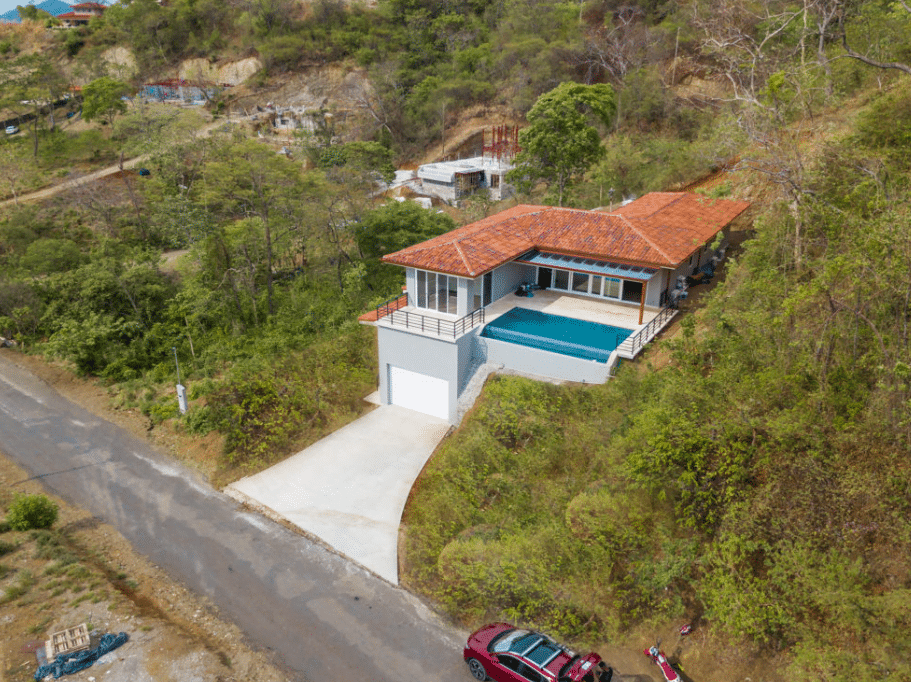
Many individuals start their investment in Costa Rica by listing their house, apartment, or condo for rent throughout the year. Because this real estate market has proven stable and reliable, an ever-increasing number of buyers now consider the country a safe long-term investment. This means buying property with the expectation that it can increase in value over time and provide dividend or interest income. Types of investors include everyone from high-income individuals who own swanky beachfront properties to middle-class investors who wish to earn a second income from home.
According to the country’s estimates, the average investment owner spends approximately six to eight weeks in the country. This leaves over 40 weeks to earn income from vacationers and other potential renters. Even in a slow economy, property rentals can earn around 8.0 percent net return in addition to standard capital growth. To put it another way, a property worth approximately $150,000 can still supply net earnings of $12,000 even after all fees and expensive. Costa Rica is one of the most lucrative markets for Caribbean real estate investment.
Other reasons to consider investing in Costa Rica include the following:
Foreigner-Friendly
- Foreigner-Friendly: Foreign investors enjoy the same legal rights as citizens. Be sure to contact the local municipality to preclude any exceptions.
Potential Year-Round Income
- Potential Year-Round Income: The Caribbean climate increase the likelihood of year-round income. Although Costa Rica has a conventional high season and a low season, the sheer biodiversity attracts visitors for various reasons during every month of the year.
Economic and Political Stability
- Economic and Political Stability: Costa Rica is a republic that is friendly with richer nations and has long enjoyed economic and political stability. It is a much safer bet for investment than other Central American countries.
- Diverse Opportunities: Costa Rica is flexible enough that you can buy land, existing beachfront property, a house, or a condo and then rent for profit.
- Expanding Infrastructure: Expanding infrastructure that includes railways, bridges, and new highways means that you can now reach remote locations easier than ever before. This expansion also makes living further out safer since you have more direct access to hospitals and other amenities as well.
- Idyllic Surroundings: One cannot say enough on how many regions in Costa Rica resemble a real-life paradise. Investing in this region can feel more like a sure-bet due to the guaranteed flow of vacationers, adventurers, and tourists. This can translate into income flow that you can use to calculate plans for your future. You can also take advantage of your property by using it as your own getaway between rentals or during renovations
3. The Major Steps to Purchasing Property in Costa Rica
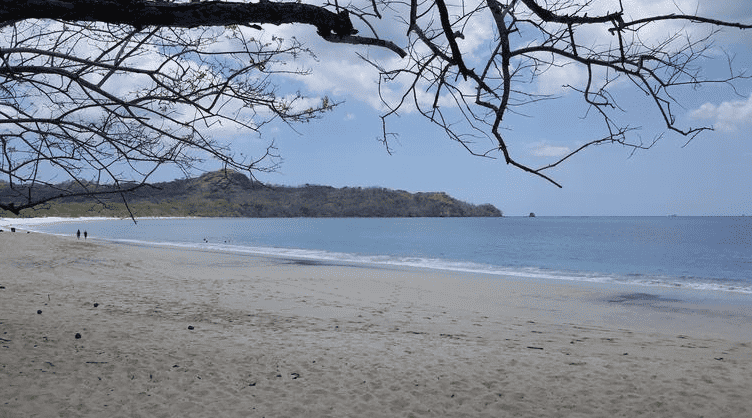
Now that you have found your dream property in terms of location and type, it is time to take the key steps to secure this property for your own. Each of these steps work toward closing the deal on your desired property as soon as possible. If you have not already, it is important to enlist the help of an experienced and trustworthy real estate broker.
How to Find the Right Costa Rica Real Estate Broker
There are no licensing requirements for real estate brokers in Costa Rica. Since virtually any citizen can go into business as a realtor, it is important to verify that the agent is a paid member of a real estate association. Currently, the most popular association is the Costa Rica Global Association of Realtors (CRGAR). This organization sets standards of service and offers a sense of transparency and security to foreign buyers.
After hiring a broker, the standard steps to purchasing property are as follows:
1. Make an Offer
- 1. Make an Offer: The first step is to make an offer in order to demonstrate interest in the property and put yourself ahead of competitors. Most offers are generally lower than “asking price.” An offer should be high enough to ensure likelihood of closing the sell, but low enough that you are not paying more than the property is worth. Check the worth of a property by conducting research on surrounding sales and getting a second opinion from an assessor.
2. Finance Your Property
- 2. Finance Your Property: As with most countries, it is unlikely to receive local financing as a foreigner. Most financiers require that applicants are legal residents of the country. It is possible to receive grants or loans as a major developer, but the most common ways to finance your property in Costa Rica include home equity loans (on your existing properties), direct savings, or retirement funds
3. Consult an Attorney
- 3. Consult an Attorney: Experienced brokers can recommend a local attorney to process what is known as a “due diligence report.” The law in Costa Rica requires you to produce a due diligence report as proper documentation that you are making a legal purchase. This report usually includes verifying registration of the title for sale, knowledge of any existing mortgages or liens on the property, and proof that any back taxes have been paid in full. The lawyer should also create and append the official contract of sale.
4. Sign the Deed
- 4. Sign the Deed: Costa Rica law requires that a local Notary Public confirms and formalizes your purchase transaction. You must sign the deed and record the transaction with the Public Registrar to ensure a legal purchase. Fortunately, you do not necessarily need to be present in the country to complete this step. Simply sign the documents remotely or authorize your lawyer to employ the power of attorney.
5. Pay Required Closing Fees
- 5. Pay Required Closing Fees: You should anticipate any required closing fees to reduce unexpected surprises down the road. It is customary that the buyer and seller each pay half of the total closing costs, but since this is not always the case, you should verify this early in the process. Closing fees can include deed transfer taxes of around 2.3-percent and attorney association (Colegio de Abogados de Costa Rica) fees of approximately 1.5-percent of the sale price. Total closing fees can cost up to 3.8-percent of the declared value of the property.
4. Understanding Property Management When Purchasing Property in Costa Rica
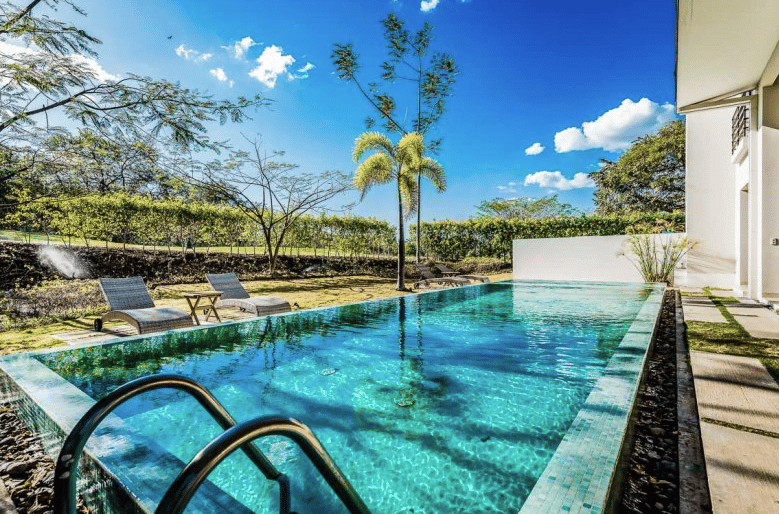
A unique aspect of buying property in Costa Rica is the recommended use of property management company or firm. Property management companies oversee the upkeep and maintenance of your real estate, keep your property compliant with local laws in your absence, and supervise the flow of guests and revenue from any rental property. Whether you choose to rent your property independently as an absentee owner or list it on an online marketplace such as Airbnb, a local property management company can help your property remain in great condition both before and after the rental. You can also enlist a property management firm to forward important legal documents or to pay relevant property taxes in your absence. Management companies are particularly useful for preventing a rural property from falling into disrepair, and these companies can help protect your investment by making your property look trustworthy and legitimate to potential clients.
Property Management and Ongoing Costs
In the real estate industry, hiring a property management firm is a standard ongoing cost to ensure upkeep of your property and protect your investment. While this ongoing cost is unavoidable for most absentee owners, it is fortunate that Costa Rica has some of the most reasonable rates in the world. Costa Rica also has one of the lowest property tax rates in the Caribbean (approximately 0.25-percent each year).
Annual property management ongoing costs to consider include the following:
- Property taxes (0.25-percent)
- Homeowner Association (HOA) fees
- Landscaping and exterior maintenance
- Utilities
- Cable and WiFi
- Standard security
- Potential maid or pool services
- Luxury taxes for hotels, villas, or beachfront rental properties
Depending on the type of property, annual maintenance can be as low as $1,500 or as high as $20,000. Since there are plenty of management firms from which to choose, be sure to ask questions that fit your property (e.g. rural vs. urban) to find the right management company and protect your investment.
5. Pitfalls to Avoid When Purchasing Property in Costa Rica as a Foreigner
Purchasing Costa Rica real estate for sale is an incredible opportunity, and many buyers are delighted to find the process much simpler than in other Caribbean countries. However, there are potential mistakes you should avoid in your quest for the perfect property. Some of the most common errors include the following:
Making Assumptions About the Process
- Making Assumptions About the Process. Since the culture of Costa Rica is laid-back and welcoming, some buyers make the mistake of assuming that the process is overly simplistic. It is important to have written documentation of the real estate market and municipal laws to avoid legal pitfalls. For example, a property for sale needs to be fully registered and titled to avoid any claims against the property after you have already handed over your money.
Trusting the Wrong Individuals
- Trusting the Wrong Individuals. Verified realtors who are members of CRGAR are safer to work with than individuals with unverifiable credentials. Ask friends, colleagues, or fellow expats for recommendations on the best real estate brokers and bilingual attorneys before buying a property.
- Rushing the Process. While you may feel eager to officially own your own corner of paradise, rushing the process can lead to greater expense and legal trouble down the line. Make sure to complete all required paperwork and register with the required governing bodies so that you do not encounter problems in the future.
- Failing to Visit the Property. Ideally, you should visit the property multiple times at various points of the year to know exactly what you are getting. You can also hire an surveyor to fully evaluate the property and surroundings.
6. Purchasing a Property to Permanently Relocate to Costa Rica
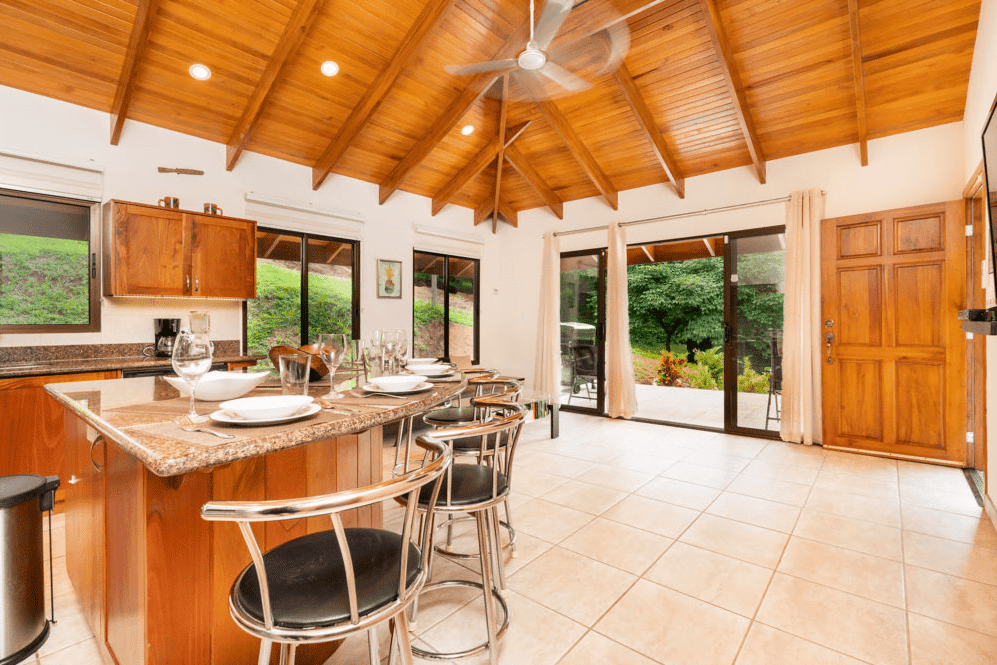
With its ideal location and ecosystem, it is now wonder that many investors view Costa Rica as the perfect vacation spot. However, there are numerous retirees and digital nomads who consider Costa Rica the ideal country for permanent relocation. This has resulted in a vibrant community of fellow expats who often organize group activities such as recreational golfing, scuba diving and snorkeling, surfing, and even workshops for wealth-building or artistry. Whether you want to start a new business or wish to relish your retirement after years of labor, the primary benefits of relocating to Costa Rica include the following:
- Spectacular views and landscape
- Pleasant climate
- Vibrant local culture
- Low crime
- Sense of community with fellow expats
- Strong and stable real estate market
- Decent amenities and infrastructure
- Great foreigner rights
- Low overall costs
If you need help purchasing property, homes, condos, businesses, or anything real estate in Costa Rica, please feel free to give our office a call.
We also offer Costa Rica tours here.